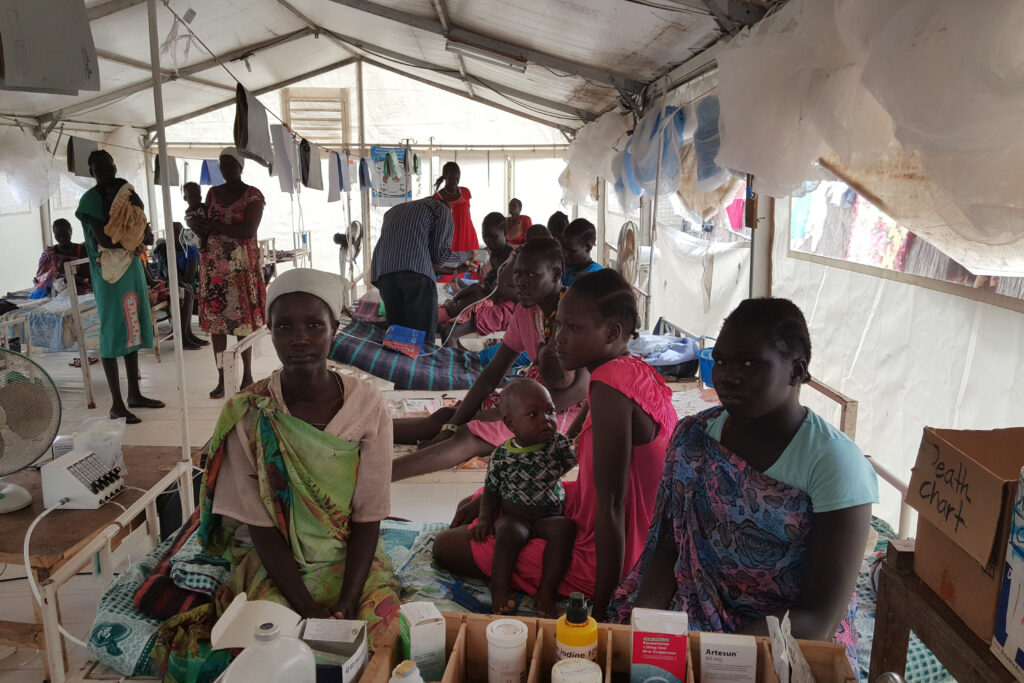Head to toe examination is key!

A baby born prematurely suffers from recurrent low blood sugar. Collaboration between the on-site medical team and the telemedicine pediatrician improved the health outcomes of this baby.
December 2021 a project based in South Sudan posts a case of a 28-day-old baby girl, born prematurely, and battling with recurring low, sometimes very low, blood sugars. The sugar levels increase with intravenous sugar solutions, but immediately drop dangerously low when the baby is only breastfed. The little one becomes more and more lethargic, though remains eager to drink and sucks well. She has loose stools and is now quite emaciated. Otherwise, no abnormalities are reported. Though in retrospect, one was noted.
This is the second time the baby presents at this small health facility. The first presentation happened a few days after birth.
Low blood sugar is a common problem in babies born prematurely and those with a low birth weight. The condition is often transient. Usually, it only needs good assessment of the breastfeeding practice and some helpful nursing advice.
However, the thorough medical doctor of this project did follow every step of the MSF neonatal low blood sugar algorithm. Despite this, the problem of low blood sugars was not solved. The baby is then referred to one of the countries few hospitals with pediatric specialist support. Still no cause is detected.
The baby goes home but returns within days to our MSF project with exactly the same symptoms.
Except perhaps the loose stools, not uncommon in purely breastfed babies, no new findings are reported. The same MD decides to give the baby another chance and posts her case on MSF Telemedicine.
As feeding issues were largely excluded, the persistent low blood sugar had to be the end result of one of the many different, though all quite rare, diseases. Some are hormonal, some metabolic and others are part of syndromes. And not only are these diseases rare, many of them cannot readily be detected at birth.
Though they already, by causing a low blood sugar, can have a devastating consequence on the developing brain. Whenever possible, these conditions are screened for shortly after birth with the well-known heel prick. This is not the practice yet in South Sudan. The local laboratory offers a simple blood count, malaria testing and basic urine tests, all not very helpful for this problem.
The telemedicine pediatrician who received the case was aware of the local settings and the desperate situation: referral for the necessary additional lab investigations had already been unsuccessful, other options would probably not solve this diagnostic riddle. But, instead of simply stating the child had now reached the end of the diagnostic road in South Sudan, he invited the MD to completely reevaluate the child together. Albeit virtually by the pediatrician.
The project MD went through the history again. She reexamined the child, paying special attention to informative clues.
When lifting the diaper, the genitals of the baby showed clear virilization: the clitoris was too big and the outer lips showed a scrotal texture. This detail was missed at birth, as prematurely born girls often have somewhat abnormal appearing genitals. They usually normalize in appearance within weeks.
This was the real clue towards the diagnosis of this condition: congenital adrenal hypertrophy. The issue in short: the adrenals are unable to produce the hormone cortisol and instead overproduce a hormone with virilizing properties. The result: low blood sugar, low blood pressure, inadequate reaction to stress, sometimes accompanied salt wasting through the kidneys, and genitals that appear too adult like in baby boys, and boyish in little girls: a small penis and a scrotal sac, but without testicles. If salt-losing is part of the presentation, the condition can be quickly fatal.
The lifesaving treatment is extremely simple: the hormone is available in almost all health facilities: hydrocortisone. Lifelong, but lifesaving!
The body recognizes the hormone being delivered into the bloodstream and stops its own ineffective attempts to produce cortisol.
The baby reacted immediately: within two days, his health improved greatly.
By Dr Jaap Karsten
